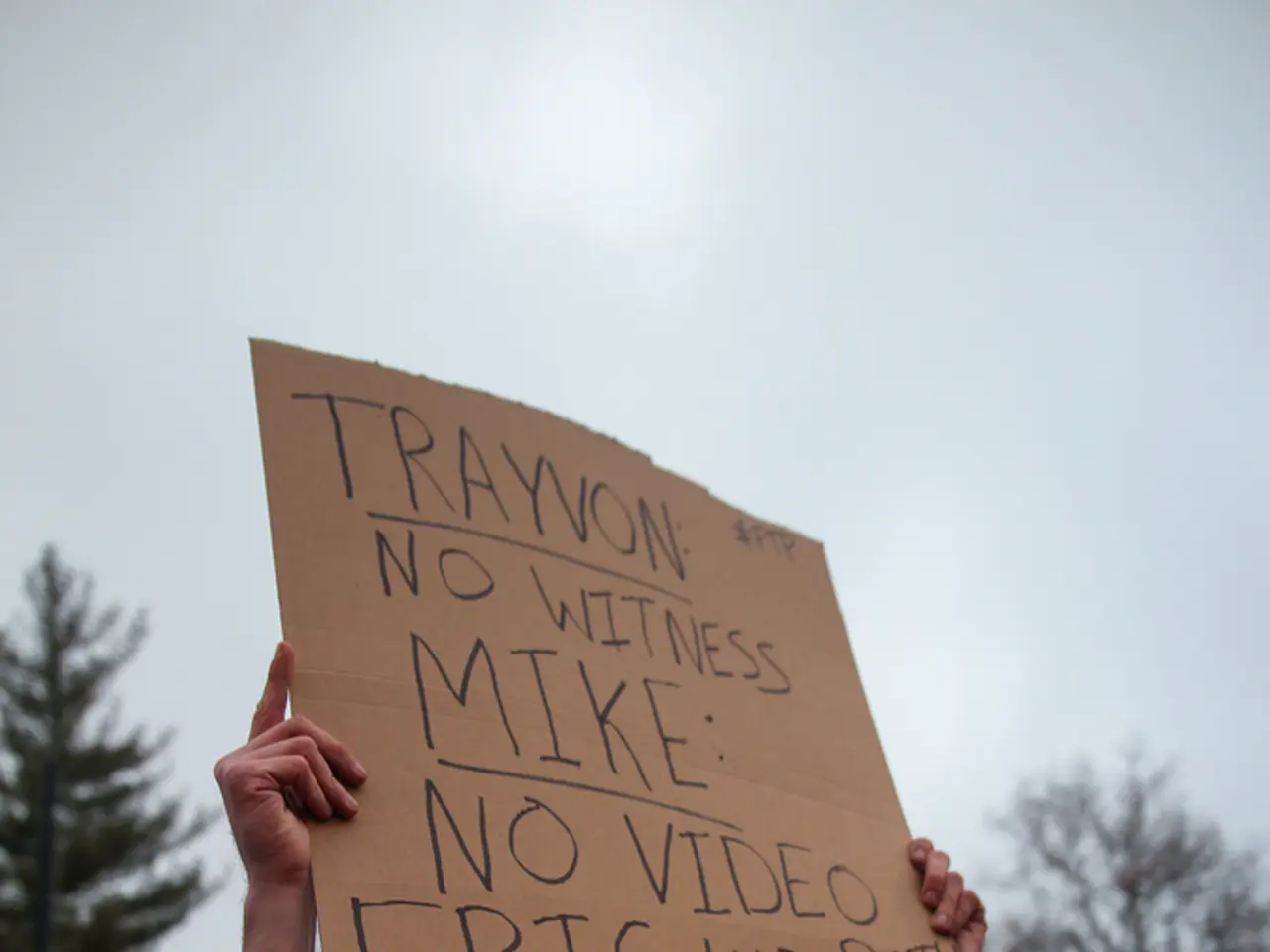Following Brosius-Gersdorf's departure, what will ensue?
German Federal Constitutional Court Election Hits Roadblock
The election process for judges at the Federal Constitutional Court (BVerfG) in Germany is facing significant challenges, with the latest development being the withdrawal of SPD candidate, Professor Frauke Brosius-Gersdorf. This withdrawal has further complicated the already tense political landscape, highlighting deep ideological divides and the ongoing politicization of the appointment process.
The stumbling block in the election process is the two-thirds majority requirement, which necessitates close cooperation between the ruling coalition and opposition parties. However, recent events have exposed fractures, particularly within the coalition and opposition alignment.
The Bundestag's failure to elect three justices in a recent vote postponed the process after Brosius-Gersdorf failed to secure the required two-thirds majority. The SPD accused the CDU/CSU of breaking previous agreements on nominations despite committee approval.
The CDU/CSU's internal resistance to Brosius-Gersdorf's nomination was mainly due to her liberal stance on abortion law, contradicting the more conservative views prevalent among many CDU/CSU members and the Catholic Church. This resistance caused significant tension within the ruling coalition and CDU/CSU ranks.
The AfD, Germany’s far-right party and second-largest parliamentary faction, also opposed Brosius-Gersdorf, adding to the politicization of the process. The election system requires a two-thirds majority vote in the Bundestag and Bundesrat, making electing judges a difficult political negotiation.
The process has been further complicated by social media and political campaigns, particularly far-right campaigns painting Brosius-Gersdorf as extremist, increasing polarization around the judicial appointments. Alleged plagiarism claims against Brosius-Gersdorf surfaced shortly before the vote, though these were dismissed by left-wing politicians as unfounded and seen as politically motivated tactics to derail the nomination.
The crisis marks one of the most serious political disputes around the Federal Constitutional Court appointments in recent history, threatening coalition government stability and raising concerns about the politicization of the Court's appointment process.
Following Brosius-Gersdorf's withdrawal, the coalition now faces a new problem: finding the necessary two-thirds majority in the Bundestag for the election of their candidates. The Greens aim to ensure that Günter Spinner, a federal labor court judge nominated by the Union, and Ann-Katrin Kaufhold, a state law expert nominated by the SPD, find majorities in the Bundestag without the AfD.
The Union faction leader, Jens Spahn, is heavily criticized by the Greens and the Left for his handling of the situation. Brosius-Gersdorf herself criticized the Union for not engaging substantively with her topics and for not inviting her to a faction meeting until the end. The Union faction has rejected talks with the Left, whose votes could be necessary.
SPD leader Lars Klingbeil demands the Union to prevent such incidents from happening again. Clara Bünger, The Left's interior politician, criticizes Spahn for damaging the Federal Constitutional Court. Both parties aim to avoid any future dependency on the AfD, whose votes are unlikely to help any candidate due to their far-right position.
As the election process continues, the focus remains on finding a solution that ensures the two-thirds majority, maintains the integrity of the Federal Constitutional Court, and reflects the diverse ideological landscape of German politics.
- The withdrawal of SPD candidate, Professor Frauke Brosius-Gersdorf, from the election process for judges at the Federal Constitutional Court (BVerfG) has heightened the ongoing discussions about policy-and-legislation, particularly in relation to the politicization of the appointment process and the ongoing ideological divides.
- The intricate politics surrounding the election of judges at the Federal Constitutional Court has moved into the realm of general-news, with key topics now encompassing the two-thirds majority requirement, the role of opposition parties, and the tensions within coalitions and aligned factions.






